Yunnan Coffee Bean Variety Yunnan Coffee producing area History Story description of flavor and taste characteristics of 2013 small grains of coffee in Qianjie
Yunnan coffee beans stand out in the competition of raw coffee beans in recent years, frequently appearing in the field of vision of the public. Yunnan small grain coffee seems to be something to be reckoned with. In recent years, Yunnan coffee, like a dark horse, has slowly appeared in the boutique coffee market. Today, I would like to share with you about the development of Yunnan coffee in recent years.
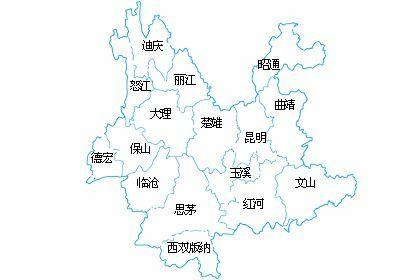
The planting History of Coffee in Yunnan
You know, coffee cultivation in Yunnan has a history of more than a hundred years. A hundred years ago, the coffee variety in Yunnan was not the Katim species that are everywhere today, but the tin card species, which has been developed twice in Yunnan. In 1904, Tian Deneng, a French Catholic missionary, went through Vietnam to preach in Dali, Yunnan Province, where he came to Zhukula village to set up a church and planted a batch of iron pickup coffee trees next to him. Then Yunnan coffee cultivation will usher in three waves of development. And this iron pickup is what we often call Arabian small-grain species, which is the origin of Yunnan small-grain coffee.
The first wave of development was in the 1960s, when Yunnan cultivated coffee in order to repay Soviet loans, and the products were acquired by the state foreign trade department. At that time, coffee cultivation was distributed in several agricultural reclamation farms: Baoshan Lujiang Farm, Xincheng Youth Farm, Dehong Shaofang Farm, Ruili Farm, Kucho Farm, Wenshan Babu Farm, and Tianbao Farm. Variety is the local breeding of tin card, bourbon variety, agricultural reclamation of the entire coffee planting area has reached 50,000 mu. After that, due to the end of the repayment work, the foreign trade department no longer actively acquired, and at the same time, due to the spread of induced disease infection, resulting in large-scale death and avoiding the crazy spread of induced disease, once the planting area shrank, leaving less than 3,000 mu.
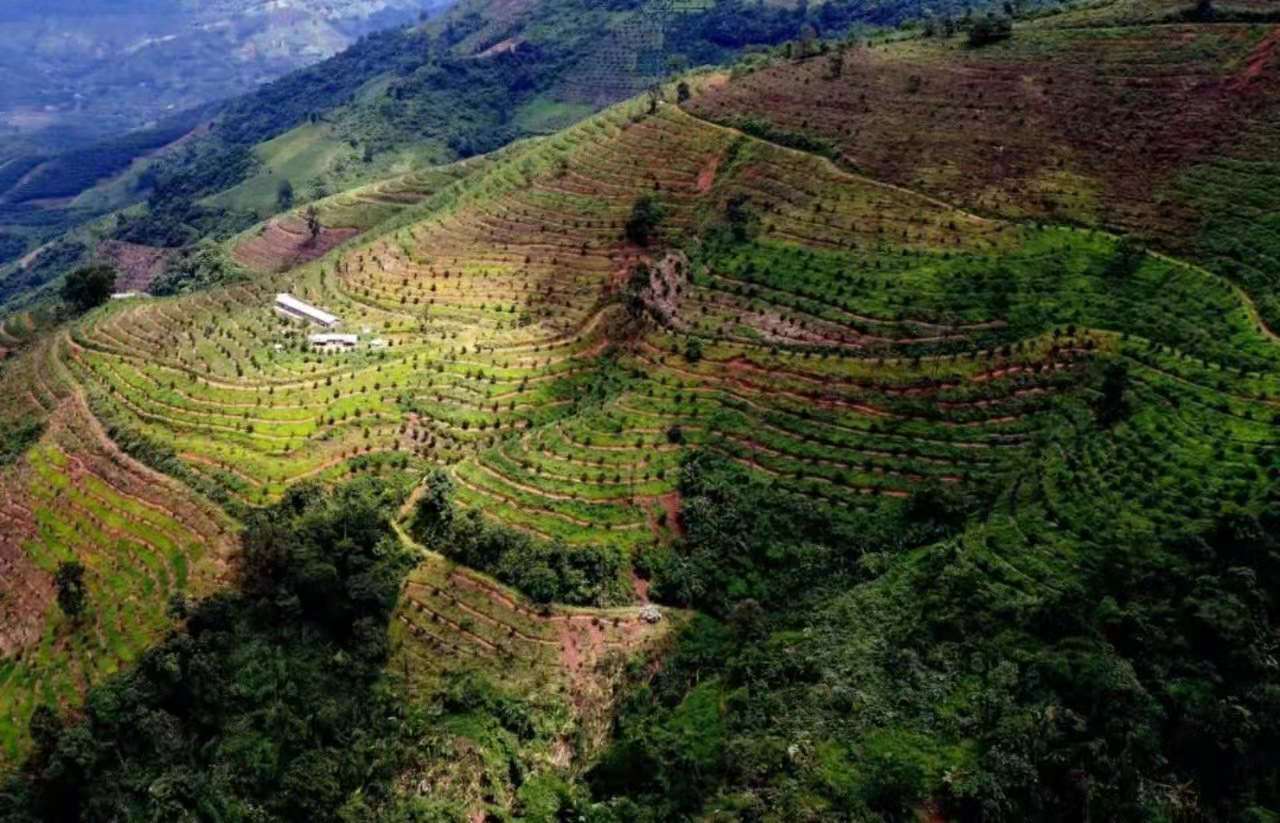
The second wave of development was the 1980s of reform and opening up. In 1988, Nestl é decided to support the development of Yunnan coffee industry and introduced Katim to be widely planted in Yunnan. Because of this development, Katim coffee has replaced the status of the ancient tree species Ironka. It has become the main tree species of Yunnan coffee, accounting for 99% of Yunnan coffee production. Katim is a hybrid variety, and it can also be classified into Arabica.
The third wave of development is after 2000, when China's economy took off, China introduced the concept of boutique coffee. At the same time, the selection and cultivation of coffee in Yunnan were scientifically developed. At present, the process of high-quality coffee in Yunnan is still in progress.
Why does Yunnan coffee emphasize the way it is handled in recent years? Although Yunnan is in the coffee planting belt suitable for coffee production, it is mostly at the level of 1000m above sea level, which is the qualified standard for growing high quality Arabica coffee. Yunnan is not suitable for growing coffee throughout Yunnan. Only Baoshan, Lincang, Simao and Dehong in southern Yunnan are suitable for growing coffee.
With the popularity of boutique coffee in recent years, Yunnan, as the representative of the producing area, is unlikely to be absent, but you will find out why Yunnan coffee pays more attention to the way of handling rather than the variety. When we discuss other producing areas, it will be from the origin, the variety, and then to the way of treatment.
When boutique coffee was proposed, China did not attach importance to the development of coffee. In the 1980s, under the guidance of coffee giant Nestl é, Yunnan began to plant Katim species with higher yield and stronger disease resistance. With the support of Nestle, the coffee harvested by farmers in Yunnan will be purchased by Nestl é at a reasonable price to make instant coffee ingredients. In the era of rapid economic development, developed areas have introduced the concept of boutique coffee, while Yunnan is based on farmers to yield as the primary goal of the planting idea, the general quality of coffee with high yield will not be too good.
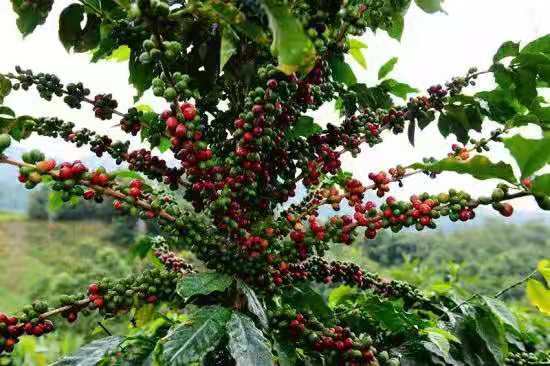
Nowadays, the development of coffee in Yunnan is in the existing Katim coffee trees, and we know very well that this is the raw coffee originally supplied to Nestl é, which cannot be leapt into boutique coffee. Therefore, at present, Yunnan coffee boutique has been divided into two ways of development, one is to use existing beans, to emulate Colombia, to use new methods to change the flavor of coffee, to make it rely on treatment to form flavor, here, you will see a very strange phenomenon, a barista sometimes seems taboo when mentioning special treatment, but after a while, if he recommends Yunnan coffee And most of them will recommend Yunnan beans with special treatment. The second is to start all over again, choose the right place, plant excellent coffee varieties, adopt scientific planting management, and cultivate high-quality coffee in Yunnan step by step.
In 2011, Yunnan coffee prices were at an all-time high, and even when international coffee futures continued to reach new highs in 2022, they still did not reach that price level. At that time, many coffee farmers in Yunnan began to replant coffee, but the price soon reached a low ebb, which is the law of agriculture.
Therefore, even with the rise of boutique coffee, they are not willing to spend five years replacing the original Katim varieties and coffee growers, instead, they would rather use the current customized coffee beans to make the treatment, you want the sun, give you the sun, you want anaerobic, give you anaerobic, only for a month. It takes at least five years to start from the foundation, from the variety, to the washing method, to the traditional route of determining the flavor. Moreover, at the beginning of planting, how can you ensure that it will blossom and bear fruit in five years' time?
The front street faces these two roads and chooses the long latter.
The way of planting and exploring Qianjie Coffee in Yunnan
Many people's impression of Qianjie coffee is "a warm, self-baked shop". This year is the eighth year of Qianjie coffee, but what many people don't know is that Qianjie coffee is actually grown half a year earlier than roasted. Qianjie Coffee was formerly known as "Big Town Coffee". It was named because in 2013, we wanted to grow coffee in a place called Dazhen in Guangdong. When we used Katim to grow seedlings to 20CM, it took us more than half a year to understand the relationship and order of variety, altitude and treatment.
Choose the right variety, plant it at an appropriate altitude, and test a treatment that can express its unique flavor when it is mature, which is the only logical relationship that Qianjie believes that boutique coffee can have obvious regional flavor.
So we gave up our plan to grow coffee in Guangdong, because the place where the coffee was originally baked was in Baoqian Street, so we renamed "Big Town Coffee" to "Qianjie Coffee". In Qianjie, while baking coffee, we continued to move forward with the idea of growing fine coffee, and successively visited the Institute of Hot Science (Tropical Agricultural Science Research Institute), which has in-depth research on coffee cultivation and the coffee provenance bank of the Ministry of Agriculture, and a small number of farmers who planted fine coffee. Find out the reasons why Yunnan does not grow the mainstream varieties of fine coffee, Tielka and bourbon, but also in the case of coincidences. Suitable land for planting has been found in the main coffee producing areas in Yunnan.
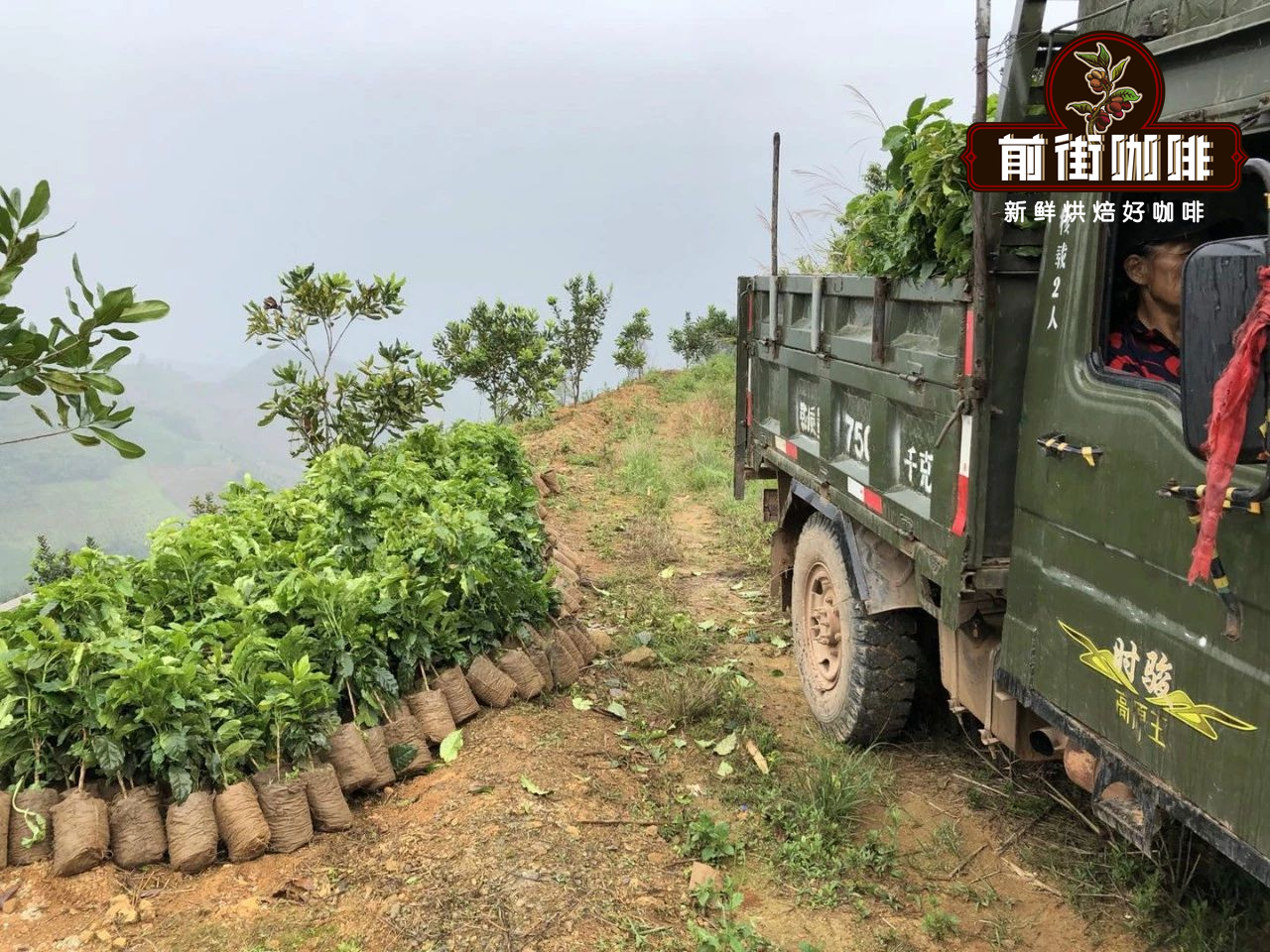
Arabica coffee beans are required to grow at an altitude of more than 1000 meters. If you want a better flavor, the higher the altitude you plant. But the elevation of Yunnan universal mountains is only on the qualified line, which is also the disadvantage of Yunnan coffee. In order to make up for the deficiency in altitude, it is necessary to pay better agronomic management under the premise of good coffee varieties.
Qianjie did not buy a ready-made coffee farm, Katim, to harvest and deal with it directly, but bought a piece of hills suitable for growing coffee, starting from the variety, no matter how good the land is, if we say that most fine coffee is based on origin, variety, altitude and treatment, while ignoring these points when we want to do a good job in Yunnan, it is actually very difficult to achieve boutique flavor. Choosing a way to grow coffee from scratch is actually a last resort. When we planted it, we didn't know if it would be a good result in a few years, but at least we made the basics of boutique coffee. after all, history chose Alabia's tin card, bourbon and Rose Summer.
The main Yunnan coffee variety grown in Qianjie is iron pickup, which is an Arabica species with excellent flavor in coffee, in order to record this long Yunnan boutique coffee experiment. At the same time, the output of iron pickup is very low, which is 1/3 of that of Katim, so why is the price more expensive? At the same time, iron pickups and bourbon are also very prone to rust, which is one of the biggest reasons why farmers are reluctant to grow what they call old varieties of iron pickups.
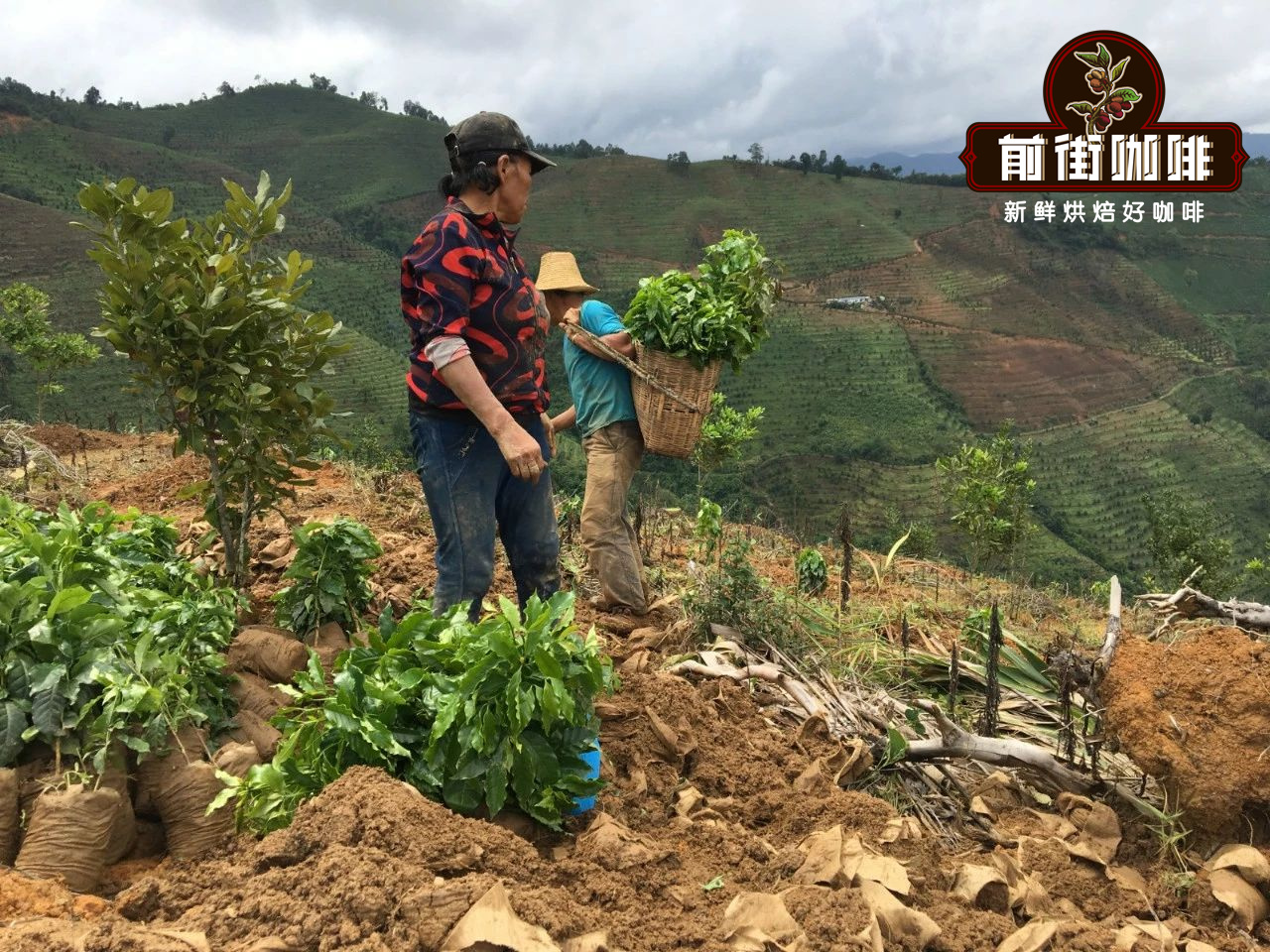
There are no four seasons in Yunnan, only dry season and rainy season, and the same is true in most coffee producing areas, which is the root cause of the use of tanning in some producing areas. June is the beginning of the rainy season in the producing areas, and it will rain for the next three or four months, which is the most favorable time for growing coffee. Only when seedlings are planted at this time and moistened by Rain Water for a few months will they be able to grow well-developed roots to survive the first half-year dry season.
Growing coffee from scratch is also a matter of high time cost. It takes three to four years from the seedling to the first fruit, and then try the right treatment and eventually reproduce it, and it will take as little as five years to get the first batch of coffee. No one can guarantee the production of high-quality high-quality coffee. Qianjie is convinced that there is nothing so easy in the world. After many breeds are selected and refined after fruit production, several years will pass.

After seven years, Qianjie finally produced a visible report card, this batch of only a small 200kg of tin pickup coffee beans, using sun treatment, in order to record the course of the past few years, so this batch of coffee beans named "Qianjie 2013" are sold in stores, and it took us eight years for this cup of coffee.

What about the flavor of Qianjie's all-home-grown coffee beans?
Filter cup: V60
Water temperature: 88 ℃
Amount of powder: 15g
Powder / water ratio: 1:15
Degree of grinding: fine sugar thickness (Chinese standard No. 20 screen pass rate 80%)
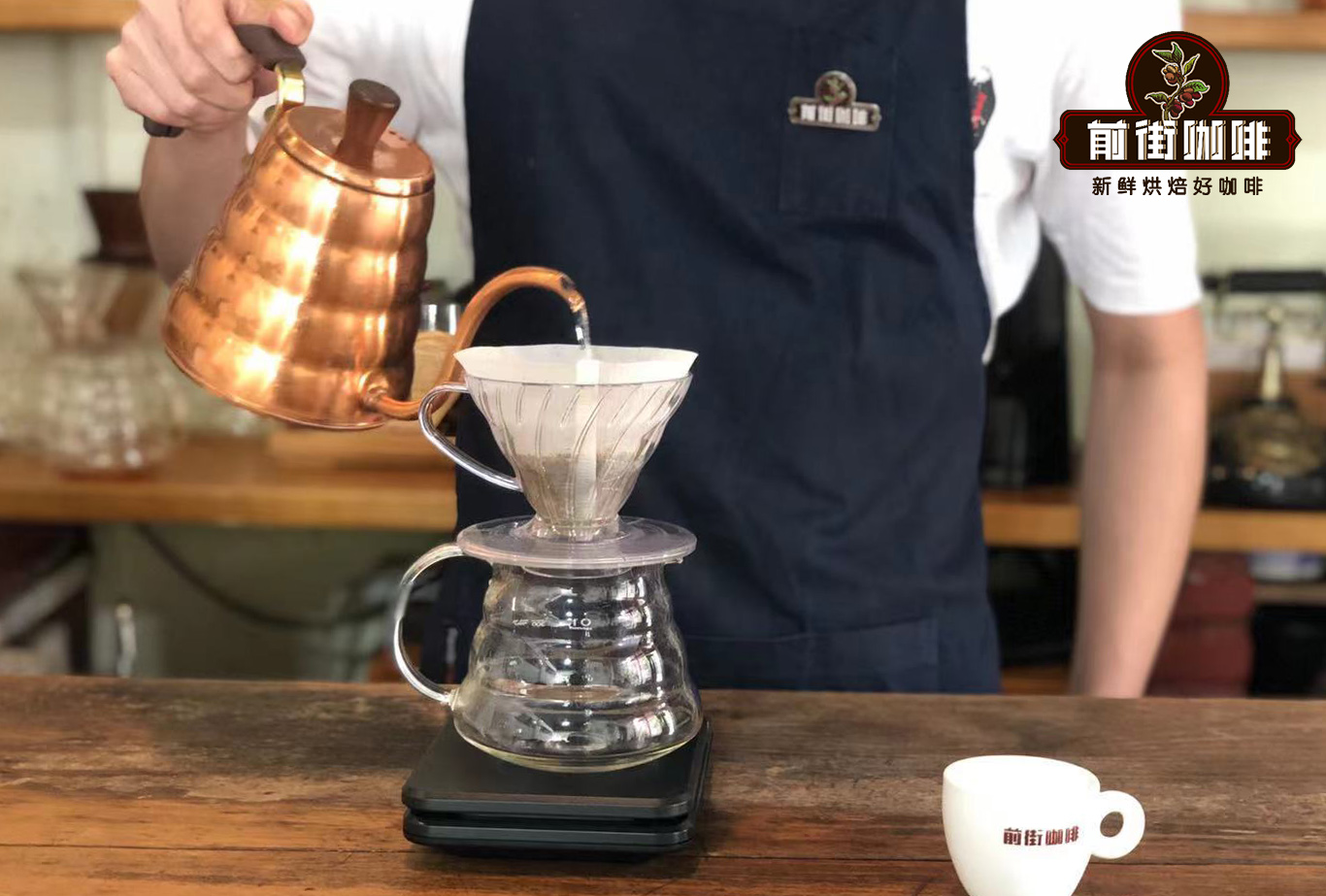
Qianjie cooking technique: segmented extraction. Steam with 30 grams of water for 30 seconds, small flow circle injection to 124 grams, continue to inject water to 227 grams when the water level is about to be exposed to the powder bed, remove the filter cup when the water level is about to expose the powder bed, and the extraction time is 2 minutes.
Taste description: Yunnan sun iron pickup coffee also has nutty tonality, tastes stronger than washed Yunnan coffee, slightly lower acidity and water washed iron pickup Yunnan coffee, but slightly more sweet, higher sense of balance, berry-like acidity, mixed with brown sugar, and a slight sense of tea.
Professional coffee knowledge exchange more coffee bean information please follow the coffee workshop (Wechat official account cafe_style)
For more boutique coffee beans, please add private Qianjie coffee on Wechat. WeChat account: kaixinguoguo0925
Important Notice :
前街咖啡 FrontStreet Coffee has moved to new addredd:
FrontStreet Coffee Address: 315,Donghua East Road,GuangZhou
Tel:020 38364473
- Prev

A brief introduction to the treatment method of grinding degree and baking degree of Yemeni coffee mocha coffee beans with unique flavor and complete grain shape
There are many varieties of Yemeni coffee, most of which are named after their origin and type, with different flavors, such as fresh wood, tobacco, musk, fruit wine, roasted nuts, cocoa and warm seasonings, especially Moha coffee. At present, Yemeni Moha coffee is most famous on the market, such as Isemary, Matari, Sanani and other varieties. Sanani coffee has medium-sized beans and fruit wine style.
- Next

A brief introduction to the treatment method of grinding degree and baking degree of Yunnan Tieka coffee beans
Yunnan coffee is a variant of Arabian original species, which is generally known as Yunnan small-grain coffee, evergreen shrub, with small nuts, thick peel, sweet pulp, mellow products and low caffeine content, so it is also called light coffee. The quality of the world's main cultivated varieties of coffee depends on the growing environment, climate, cultivation and management techniques and other factors. it
Related
- Detailed explanation of Jadeite planting Land in Panamanian Jadeite Manor introduction to the grading system of Jadeite competitive bidding, Red bid, Green bid and Rose Summer
- Story of Coffee planting in Brenka region of Costa Rica Stonehenge Manor anaerobic heavy honey treatment of flavor mouth
- What's on the barrel of Blue Mountain Coffee beans?
- Can American coffee also pull flowers? How to use hot American style to pull out a good-looking pattern?
- Can you make a cold extract with coffee beans? What is the right proportion for cold-extracted coffee formula?
- Indonesian PWN Gold Mandrine Coffee Origin Features Flavor How to Chong? Mandolin coffee is American.
- A brief introduction to the flavor characteristics of Brazilian yellow bourbon coffee beans
- What is the effect of different water quality on the flavor of cold-extracted coffee? What kind of water is best for brewing coffee?
- Why do you think of Rose Summer whenever you mention Panamanian coffee?
- Introduction to the characteristics of authentic blue mountain coffee bean producing areas? What is the CIB Coffee Authority in Jamaica?

